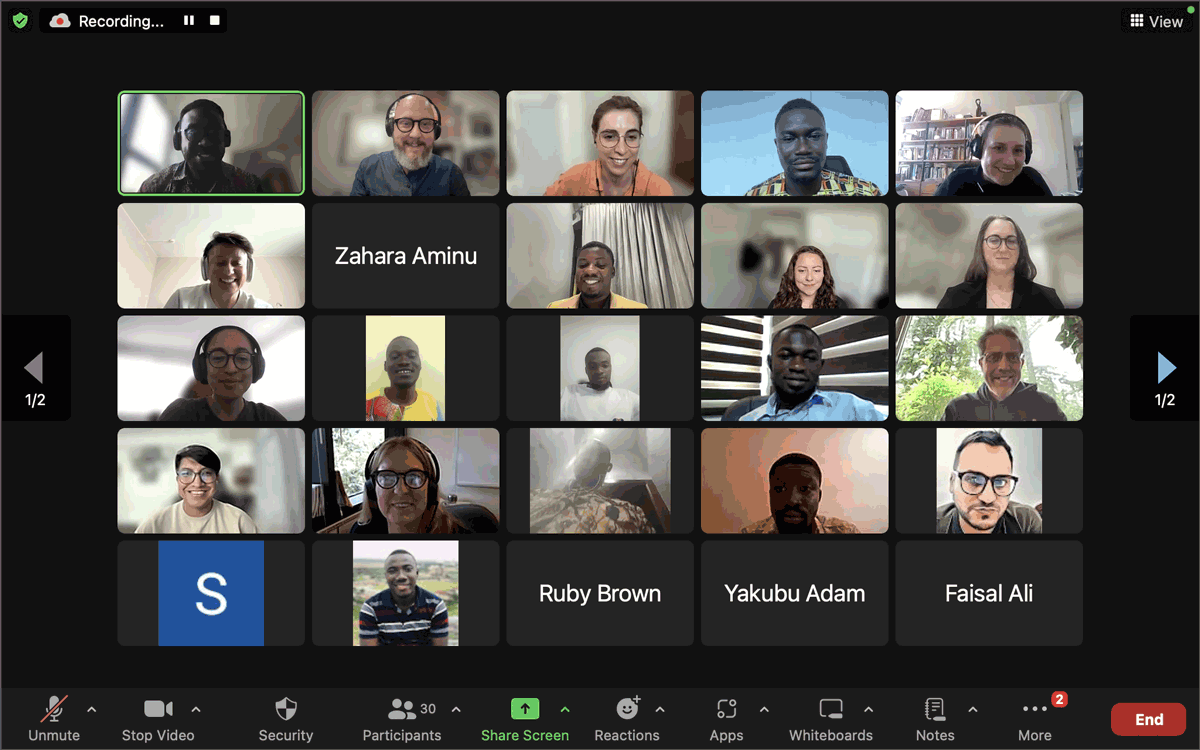Text originally published at Eco Media
Climate activists and open knowledge experts in the Global South and Global North have begun a partnership to seek more ‘openness’ in climate change negotiations.
The coalition OPEN GOES COP includes organisations and individuals advocating for openness in the context of the UN Climate Change Conferences (COP).

There is a knowledge gap when it comes to climate change and access to information, such as research. Most climate change research is not accessible, with Curtin Open Knowledge Initiative estimating that 47% of climate change research is not accessible.
According to Monica Granados of the Open Climate Campaign, through bibliometric research, they estimated that only about 49% of climate change publications are openly available.
The problem is not a lack of research, but rather the availability of this research to inform decisions. If research is not available, it will mean that much of the knowledge on climate change research will not be accessible without a paid subscription or pay-per-use fee, a cost that will be a burden to individuals, communities, governments, or institutions in low and middle-income countries.
The case for openness in climate action
In 2015, all countries – developed and developing – signed an agreement known as the Paris Agreement that requires them to make significant commitments to address climate change.
Article 13 of the agreement requires all parties to build mutual trust and confidence and to promote effective implementation, an enhanced transparency framework for action and support, with built-in flexibility which considers the Parties’ different capacities and builds upon collective experience.
The transparency requirements can be achieved only if there is available data on existing climate change research. Data is a basic element of any openness, providing an understanding of what is being worked on.
However, there is still a vast margin of work needed when it comes to open data sharing between governments and international agencies or between researchers within the UN Climate Change Conferences and in the larger sustainability space.
“We would love to see open data being discussed as a way of implementing the enhanced Article 13 of the Paris Agreement and that national delegations to COP engage with their open data teams back home to bring proposals on how to implement that collaboration,” said Natalia Carfi, of the Open Data Charter.
“Out of the research we conducted, we know that in some cases, the governmental teams in charge of reporting to the UNFCCC are not connected at all with the open data team and we believe there is public value in the data being created that is locked without that interaction,” she added.
Among the many challenges within the climate change and larger sustainability space is the replication of projects, due to the lack of public digital infrastructure on climate change research, which draws home to no impact.
“With Open Goes COP, we want to create a space where existing projects are showcased so they can serve as best practice. We want to build bridges among different projects with a climate focus on the open movement out there. The idea here is not to compete, but to cooperate instead,” explained Sara Petti of the Open Knowledge Foundation.
Openness in the African Climate Context
In the African climate context, the continent is responsible for less than 10% of global greenhouse gas emissions. However, it faces more effects of climate change than continents with larger emissions.
In 2022, weather, climate, and water-related hazards directly affected over 110 million people in Africa, causing over $8.5 billion in economic damages, according to the Emergency Event Database. There were a reported 5,000 fatalities, with 48% associated with drought and 43% with flooding.
The continent faces two crises in the context of climate change: a lack of finance for adaptation and mitigation innovations and data challenges to inform decision-making and policies on the planetary crisis.
The data challenge is due to the lack of digital public infrastructures that facilitate research sharing.
Another challenge is internet accessibility, as most research and data registries are online. For example, Africa’s Internet penetration rate is much lower at 36% compared to Asia’s 67.4% and the European Union’s 89%.
“It is important to note that openness alone is not a panacea, and its benefits can only be realized if accompanied by complementary policies, investments, and capacity-building efforts. Careful implementation and the leveraging of openness in alignment with the specific needs and contexts of African and other Global South countries are crucial for maximizing the positive impacts,” suggested Otuo-Akyampong Boakye, of the Wiki Green Initiative.
There are hundreds of open knowledge initiatives existing, many in European nations and the United States. To achieve openness in climate change, all parties need to agree on the creation framework that would serve the purpose.
What will be the essence of a research work if it doesn’t benefit its intended audience and bring about change?








